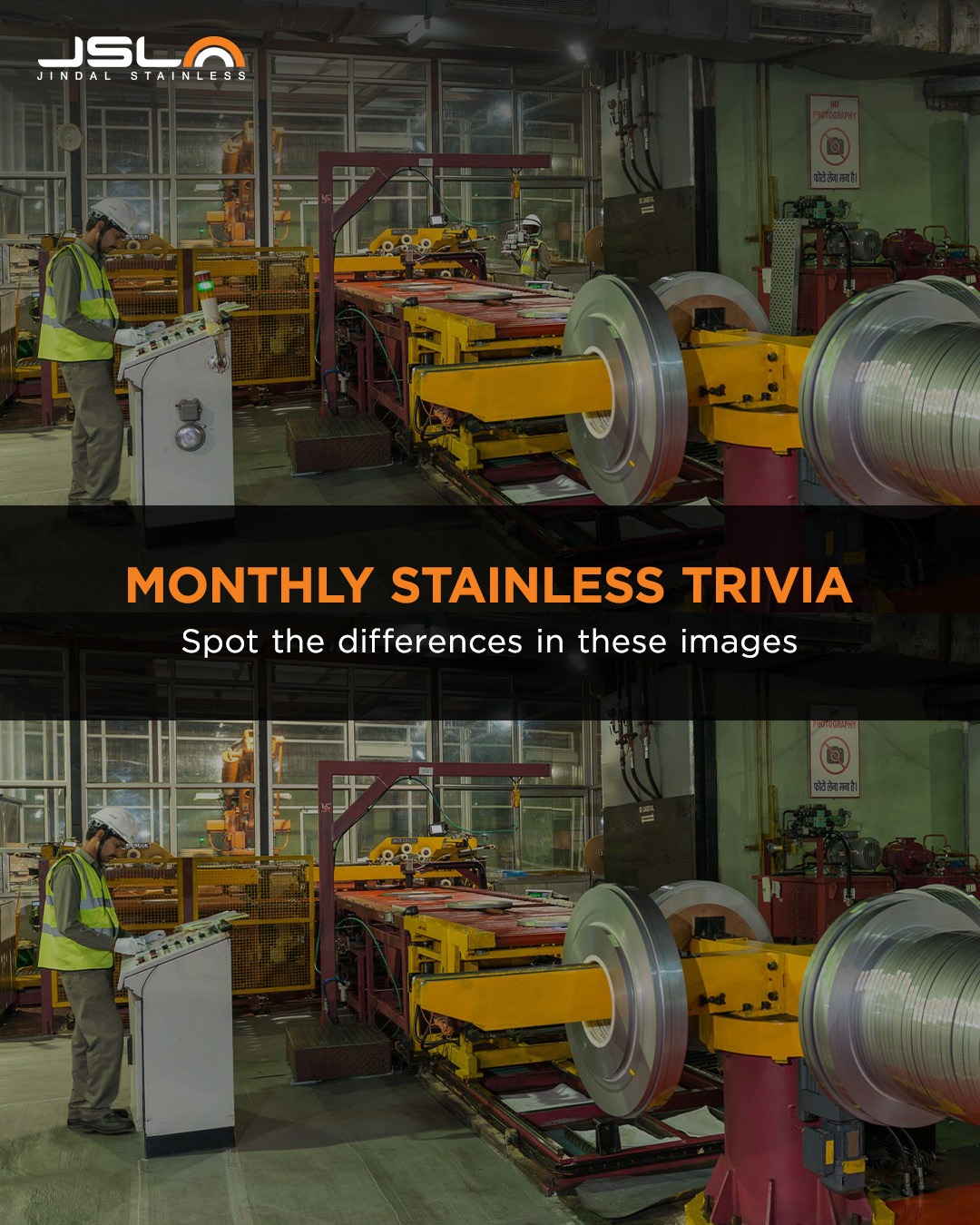
Monthly
Stainless Trivia
Fill in your answer below
New Delhi, April 16, 2024: Jindal Stainless, India’s largest stainless steel manufacturer, today announced its official commitment to the near-term science-based emissions reduction and Net Zero targets outlined by global climate action body Science-Based Targets initiative (SBTi), in a significant step towards achieving carbon neutrality. The development makes the company the largest such player in the stainless steel and steel sector in the country to express the intent.

On the occasion, Managing Director, Jindal Stainless, Mr Abhyuday Jindal, said, “This commitment is an important milestone as we work towards transitioning to a low-carbon economy, and marks the beginning of a rigorous process to develop ambitious, science-driven emissions reduction targets. By aligning with SBTi’s standards, the company aims to significantly reduce its carbon footprint and inspire positive change within the industry.”
Commenting on the development, Chief Sustainability Officer, Mr Kalyan Bhattacherjee, said, “The development of these targets will include a comprehensive assessment of the company’s GHG (Greenhouse Gas) inventory across the operations and the entire value chain. Going forward, we will develop the Science Based Targets (SBTs) aligned with the latest climate science deemed necessary to meet the goals of the Paris Agreement – limiting global warming to 1.5°C above pre-industrial levels – over the next 24 months and get them validated by the SBTi.”
Jindal Stainless has taken several steps in its decarbonisation strategy in the recent months. From the establishment of a green hydrogen plant to entering into a contract for a 300 MW wind-solar hybrid renewable energy projects, the company has strategically aligned its efforts to decarbonise with the aim of achieving Net Zero emissions by 2050. At the prestigious COP28 climate summit, the company said it is set to achieve its mid-term target of 50% carbon emissions reduction well before the target year of 2035 and achieve Net Zero by 2050. It also plans to generate over 1.9 billion units of clean electricity per annum through initiatives that have the potential to reduce carbon emissions by over 13.52 lakh tonnes per annum.
By committing to set a net-zero target, the company has also become part of the Race to Zero campaign – the UN-backed global campaign to rally leadership from all non-state actors including companies, cities, regions, financial, educational, and healthcare institutions for a healthy, resilient, zero carbon recovery.
The SBTi is a collaboration between CDP, the United Nations Global Compact, World Resources Institute (WRI) and the World Wide Fund for Nature (WWF) and one of the We Mean Business Coalition commitments. The global body develops standards, tools and guidance for companies and financial institutions worldwide to play their part in combating the climate crisis and provides companies with a framework for setting ambitious emissions reduction targets aligned with climate science. The organisation defines and promotes best practice in science-based target setting, offers resources and guidance to reduce barriers to adoption, and independently assesses and approves companies’ targets.Near-term science-based targets are 5-10 year GHG mitigation targets in line with 1.5°C pathways, whereas Net-zero science-based targets are long-term targets to reduce emissions to a residual level in line with 1.5°C scenarios by no later than 2050. Jindal Stainless is publicly listed as “Committed” on the SBTi website (www.sciencebasedtargets.org/target-dashboard). Following approval, the company is required to inform the targets to the stakeholders, disclose the organisation’s emissions annually and monitor progress against the target as stated in the SBTi criteria.